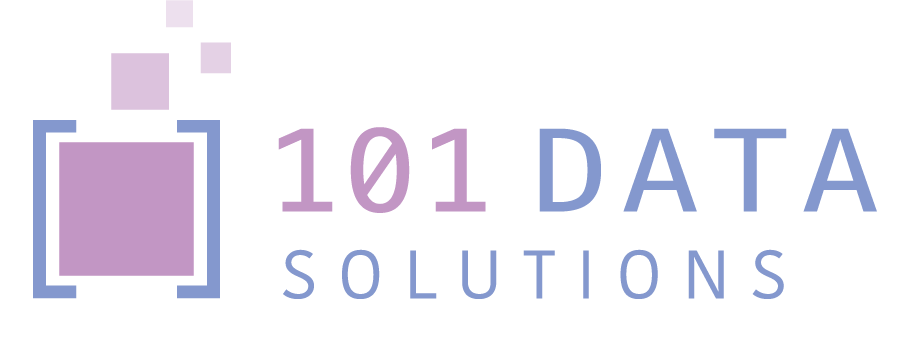For businesses striving to stay ahead of their competition, having the most advanced technology is essential for making informed decisions. With this in mind, IT professionals face the challenge of choosing the right systems that meet the company’s needs. Therefore, data analysis and data management should be crucial to any IT plan. Here at 101 Data Solutions, we can help you select the best option for your business, considering the need for cost savings, increased efficiency, and increased productivity. If companies cannot effectively collect and analyse data, they may make uninformed decisions that negatively impact their business. So, stay informed, competitive, and ahead of the game by ensuring your business is prepared for the future with the right IT solutions. Here are some suggestions to ensure you’re ticking the boxes.
Cloud computing services provide businesses with a secure and reliable way to store and analyse data. By using cloud computing services, companies can avoid the hassle and expense of maintaining and updating their hardware. Instead, businesses can access the cloud’s resources whenever needed and scale their services as they grow. Cloud computing also enables enterprises to host new applications. As a result, companies can create and deploy applications quickly without worrying about the cost and complexity of managing their hardware. This allows businesses to be more agile and respond rapidly to changing customer needs.
Big data analytics has become an invaluable tool for businesses that handle large amounts of data. It enables them to quickly and accurately analyse their data, uncovering valuable insights that would otherwise remain hidden. With big data analytics, companies can identify emerging trends and patterns in their data that can be used to make more informed decisions. Big data analytics can also be used to identify customer preferences and behaviours. By analysing customer data, companies can better understand their customers and their needs. This can help them develop more targeted and personalised marketing campaigns and more effective products and services. Big data analytics can also be used to improve operational efficiency. By analysing data from different business areas, companies can identify areas where processes can be streamlined and improved.
Data visualisation tools provide businesses with an effective way to interpret and make sense of their data. This makes it easier to identify trends and relationships between data points that may not be easily recognisable otherwise. Data visualisation tools allow businesses to quickly identify areas that need improvement regarding increasing operational efficiency. This can be especially beneficial in customer service environments, where employees need easy access to customer data. By displaying data in an easy-to-understand format, data visualisation tools help customer service representatives better understand the needs of their customers and provide more efficient service. Data visualisation tools also have the potential to improve the customer experience by providing customers with a clear visual representation of the data relevant to them, e.g. financial or medical records.
Data security solutions help protect data from unauthorised access, malware, and other potential security threats. The solutions come in various forms, from encryption and tokenisation to data loss prevention (DLP) and access control. Encryption scrambles data so that it is unreadable to anyone who does not possess the encryption key. Tokenisation replaces sensitive data with a token, making it impossible to reconstruct the original information. DLP solutions help identify and block the transmission of sensitive data, while access control solutions manage user access to sensitive data. Data security solutions can also provide businesses with advanced threat protection, allowing them to detect, respond to, and mitigate potential security threats. In addition, companies will meet the requirements of data privacy regulations, such as GDPR.
Business intelligence (BI) tools are essential for any business looking to understand better customer behaviour, operational performance, and market trends. Analysing data sets can offer invaluable insights into how customers interact with products and services and how operational processes can be improved. They can be instrumental in customer service environments, as they can help identify customer behaviour patterns, preferences, and satisfaction levels. BI tools can also help businesses to measure the effectiveness of their marketing campaigns and adjust their strategies accordingly. In addition, BI tools can be used to measure operational efficiency. By analysing data from different processes, companies can identify areas to streamline their operations and eliminate inefficiencies.
About Brett Edgecombe, Managing Director, 101 Data Solutions
Even as a child living in Canada, Brett always had an interest in technology, so starting his career within the technology industry was a natural progression in 1998 when it began at the UK’s first ISP, Compuserve Interactive Services in Bristol.
He has first-hand experience in modern Enterprise Storage Infrastructure solutions, having worked at Sun Microsystems in 2000, where he worked with large commercial and education customers across the UK.
Brett created 101 Data Solutions in 2008 with a focus on Data Storage centric delivered through high-quality technology solutions direct to businesses throughout the UK. His strategic vision and sector knowledge allows him to bring excellence to 101’s customers through experience, technical foresight and relationship building.



